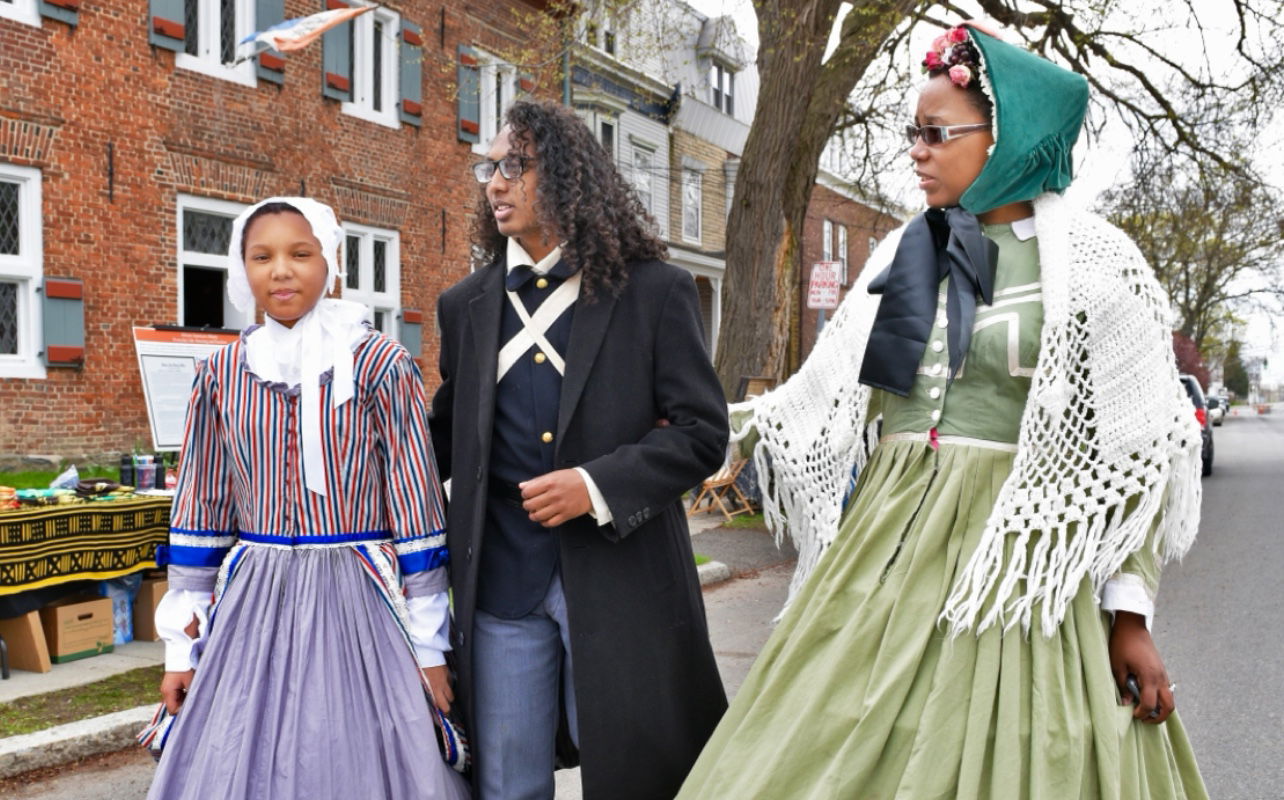
June 3, 2024
Rediscovering Pinkster: New York’s Historic Black Festival Returns Amid Juneteenth Celebrations
Pinkster was originally a Dutch Pentecostal holiday, but enslaved Africans in New York and New Jersey adopted the tradition and it was considered as a Black holiday from the 1800s on.
As Juneteenth has entered the national consciousness, the attention has allowed some older regional celebrations to share a portion of the spotlight. Although Pinkster was originally a Dutch Pentecostal holiday, enslaved Africans in New York and New Jersey adopted the tradition, and it became considered a Black holiday from the 1800s on.
According to HudsonValley.org, Pinkster is traditionally celebrated between late May and early June, and for the early Black revelers, it meant a break from work, a chance to visit relatives and friends, and a chance to keep African traditions alive away from the eyes of their enslavers.
In the present day, a measure by New York State Assemblymember Brian Cunningham to make Pinkster a state law is pending. Cunningham told USA Today that the holiday needs to be recognized because it is a key part of New York’s state history and allows for Black joy to be placed front and center. “We still found moments to come together and celebrate our collective history,” Cunningham said.
In addition to Cunningham’s efforts, Cheyney McKnight, a member of the New York Historical Society, is among several keeping the tradition alive. McKnight and a group of 11 marked the holiday in May by recreating a route enslaved Black people would have traveled. Ahead of the day’s travels, McKnight told a crowd gathered at the starting point of the route, a farmhouse in Manhattan, “There’s nothing like family. These people came together every year to congregate, to just have a good time. This shows their agency.”
Slavery in America was not just a Southern tradition, according to Andrea Mosterman, a professor of early American history at the University of New Orleans. “For more than 200 years, slavery was a regular part of New York life.” Mosterman also indicated to the outlet that slavery was “really integral to this society.”
According to Myra Young Armstead, a history professor at Bard College in New York, part of what effectively ended what was at that time the largest Black celebration in early Colonial American history was a fear that if the enslaved Black population kept meeting, they could secretly plot to rise and overthrow their white enslavers, similar to what had occurred during the Haitian Revolution. As a result, Pinkster was outlawed in 1811, and the tradition lost its position over the years.
Lavonda Nahon, an author and a public historian for the New York State Parks office, told USA Today that reviving the holiday is important because it preserves the dignity of enslaved people. “We need to take the shame that other people have placed upon us off by rediscovering things like Pinkster and celebrating them however we choose to. It’s vitally important that people went out of their way to remain human in their own eyes.”
McKnight agrees, telling USA Today her reasons for helping to keep the holiday alive revolved around her love for Black residents of New York. “I just kind of wanted it to be a gift to, you know, Black New Yorkers. It’s for them. And it’s not about educating white folks or the public about us. It’s about us.”
RELATED CONTENT: Jersey City’s Juneteenth Celebration Set To Be Bigger And Better This Year